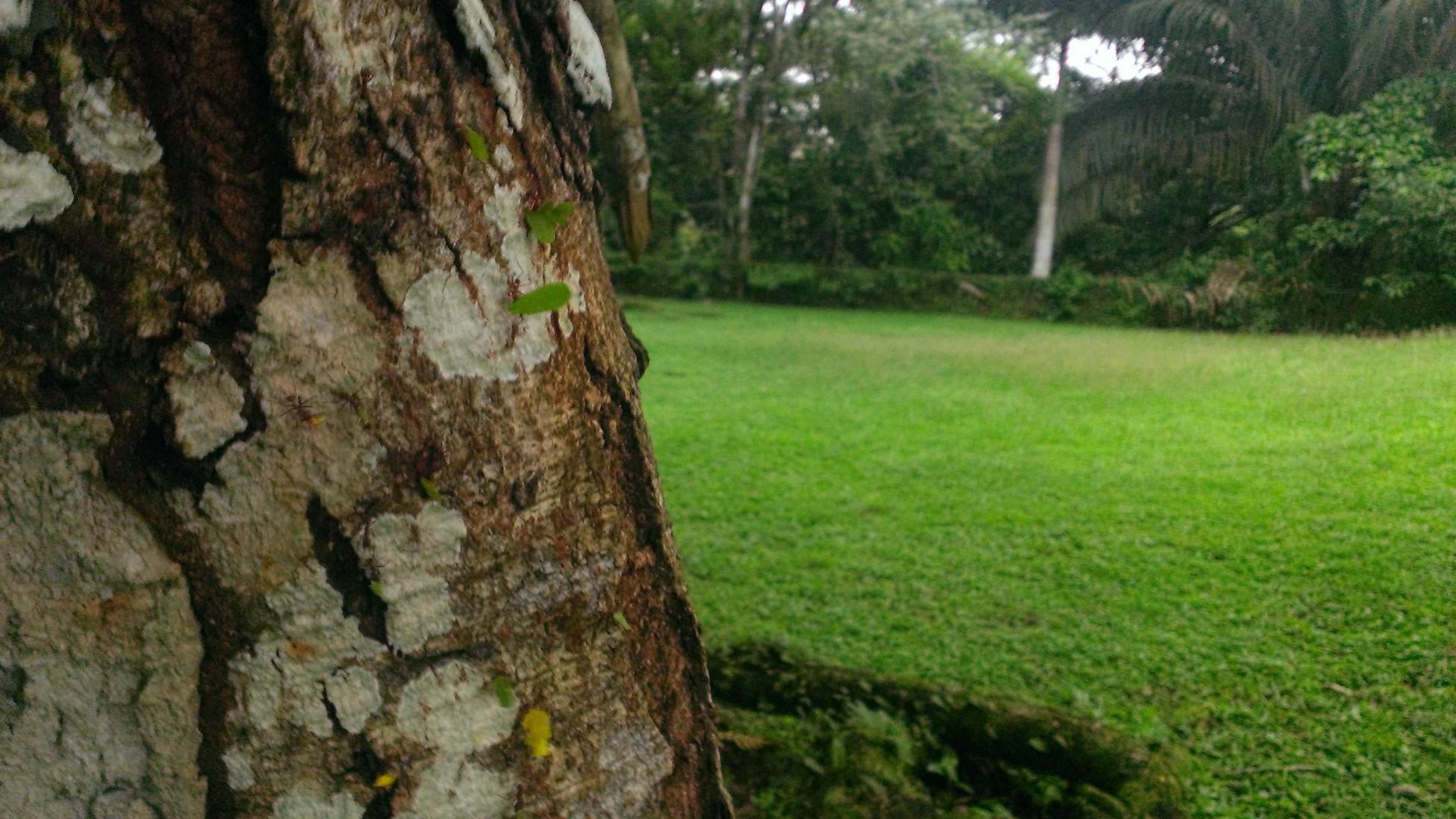“I was checking in with my family,” another girl in the program informed me on our way back from the designated WiFi house down the street. (Unfortunately, our house was still left unconnected to the resort’s network, so before bed, we had opted to head over to check our emails.)
“Me too,” I chimed in. “I hope the WiFi starts working in our house soon.”
“Stop!” she held me back from taking another step, pointing down.
My eyes panned down to the army ants that marched in a band the width of my hand. Some carried their leaf bits swiftly in one direction and others sidestepped the top-heavy ants and walked back in the opposite direction toward the origin of the leaves. They created a significant current of activity that we could have disrupted with one giant dam-like step.
It was dark out and the noise of the human visitors in Gamboa was at a minimum. The flow of the ants traversed the pavement in the absence of cars and the army went for as far as I could see, in the glow of the streetlight, in both directions. As we silently stood, allowing the perpetual glaze of sweat to set on our skin, the ants marched on, unperturbed. The leaves looked crisp and white and not unlike the sails of boats, simultaneously gliding over and against the muddy river of ants.
The first meeting was the most memorable, but each time we have walked along the street since, we find our neighbors out and about, day or night. We are reminded of our how impressive their work ethic is and we sidestep the consistent trickle.
One morning, I took this video of the ants, taking their leaves from a different tree this time. Not only are the ants a sight, but the sounds of Gamboa in the morning, with squawking birds and all, are an insight into the sensory delight of the tropical forest.

